Would You Share Your DNA in Pursuit of Good Skin?
According to forward-thinking beauty biohacking brands, gene analysis is the future.
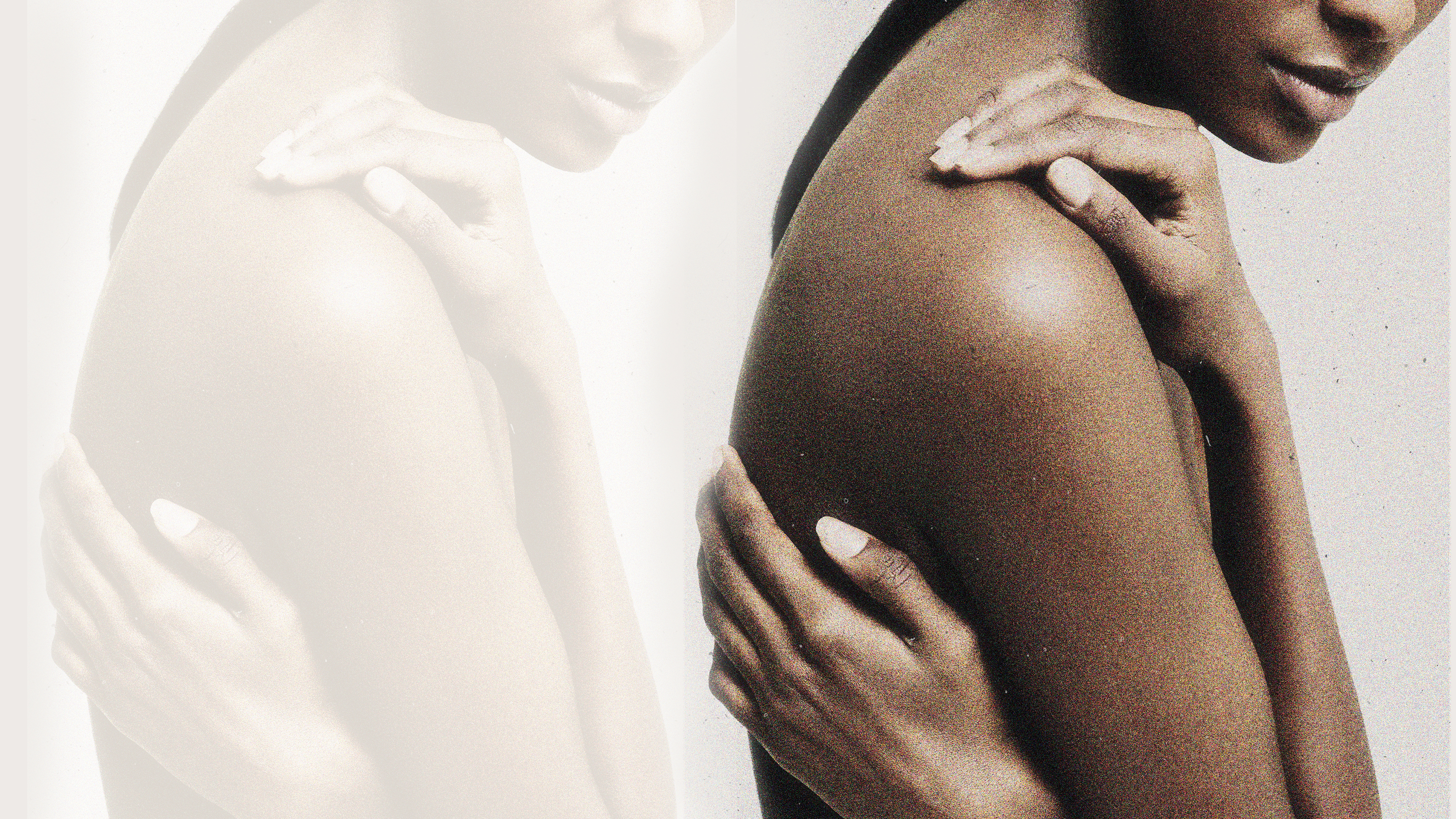

Emma Jones had tried moisturizer. In fact, Emma Jones had tried multiple moisturizers—and lotions and serums and soaps. But the 35-year-old real estate agent, with freckled, fair skin that itched and flaked, couldn’t find a skincare product that relieved her chronic dry spells. So when she came across a blog that mentioned genetic skin testing, Jones decided to give it a try. She ordered a deoxyribonucleic acid (DNA) kit from GeneHabit, a genetic testing platform that promises skincare insights that “can help you understand your skin’s genetic risk of developing skin conditions such as premature aging, sun damage, skin elasticity, skin allergies” and determine if you are “predisposed to certain skin conditions, like acne, eczema, psoriasis, and wrinkles.” And it doesn’t just reveal the future of your face, but what’s dimming your glow now; deficiencies in vitamins, minerals, and nutrients that show up as skin problems.
For $99 and a quick spit in a tube, Jones would get a personalized skincare report, created by scientific experts, along with a recommended beauty routine. “I had never considered that my genes could have such a significant impact on my skin,” she says. “I had previously focused on external factors, like the weather and the creams I used.”
When Jones received her genetic dossier, she discovered she had a gene mutation that caused her skin to be very dry. To help, GeneHabit recommended—a moisturizer. But the report did go deeper, in that it suggested she incorporate products specifically containing niacinamide—an ingredient that helps to regulate moisture by acting as a barrier—into her beauty routine and add more antioxidant-rich foods such as fish, eggs, and orange juice into her diet. Jones found the process “enlightening” and the information “invaluable” in guiding the choices she made for her complexion. And after a few weeks, she did see improvements.
Like Jones, many people are turning to DNA testing to help them figure out the complexity of their skin and to come up with a personalized plan. With just a swab of the inside of their cheek, a few drops of saliva, or sometimes a blood sample, they can garner specific insights, based on their genetic makeup, into how their skin will age, how to treat skin conditions, and sometimes how to stop problems before they happen.
Beauty biohacking is a big, burgeoning industry within the skincare and wellness space. According to the 2023 DNA Based Skin Care Products Global Market report, the $6.5 billion genomic skincare industry is expected to grow by a few more billions by 2027. With their unique-to-you approach to skin health, these next-generation companies are the antithesis of a beauty space that can feel crowded with an overwhelming amount of options and opinions.
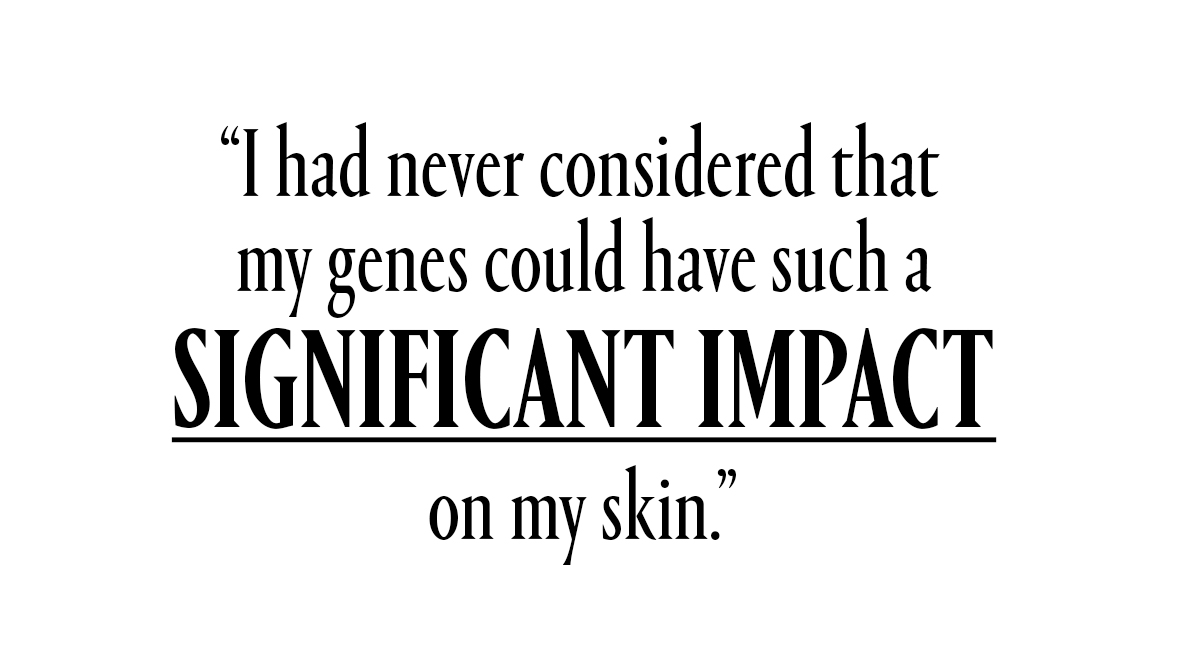
DNA testing doesn’t make predictions about skin health in the clairvoyant you’re-going-to-get-a- pimple-tomorrow kind of way. Instead, after sending in your saliva or blood sample, it’s evaluated by a team of scientific experts who study your genetic makeup and send you a detailed report two to six weeks later.
Multiple different genes influence the way skin responds to UV rays, pollution, stress, and poor nutrition, and some individuals carry genetic variations that make them more susceptible to premature aging, says Sara Harcharik Perkins, M.D., assistant professor, department of dermatology at Yale School of Medicine. It’s using these DNA markers that companies claim gives them the ability to provide a tailored skin diagnosis.
Stay In The Know
Get exclusive access to fashion and beauty trends, hot-off-the-press celebrity news, and more.
“Our clients have been happy that they don’t have to guess and buy products that aren’t effective; instead, they invest a little upfront to ensure that the products they choose are going to work,” says Darya Rzaca, an esthetician and co-owner of Atelier Beauté in Brooklyn, a skincare clinic that offers DNA analysis. Rzaca says the tests allow her to understand whether a person is predisposed to having acne or pigmentation problems, and provide insight into collagen production rates, skin elasticity, and sensitivities.
On a bigger scale, companies like Nordic Labs in Denmark have begun offering DNA testing, too. Using a small blood sample, the Nordic Labs’ DNA Skin division tests for 18 gene variants associated with skin health and aging, collagen formation, inflammation, breakouts, hyperpigmentation, and even oxidative stress. From the resulting information, the company generates a comprehensive, holistic report highlighting personalized nutritional, wellness, and skincare recommendations to support an individual’s needs.
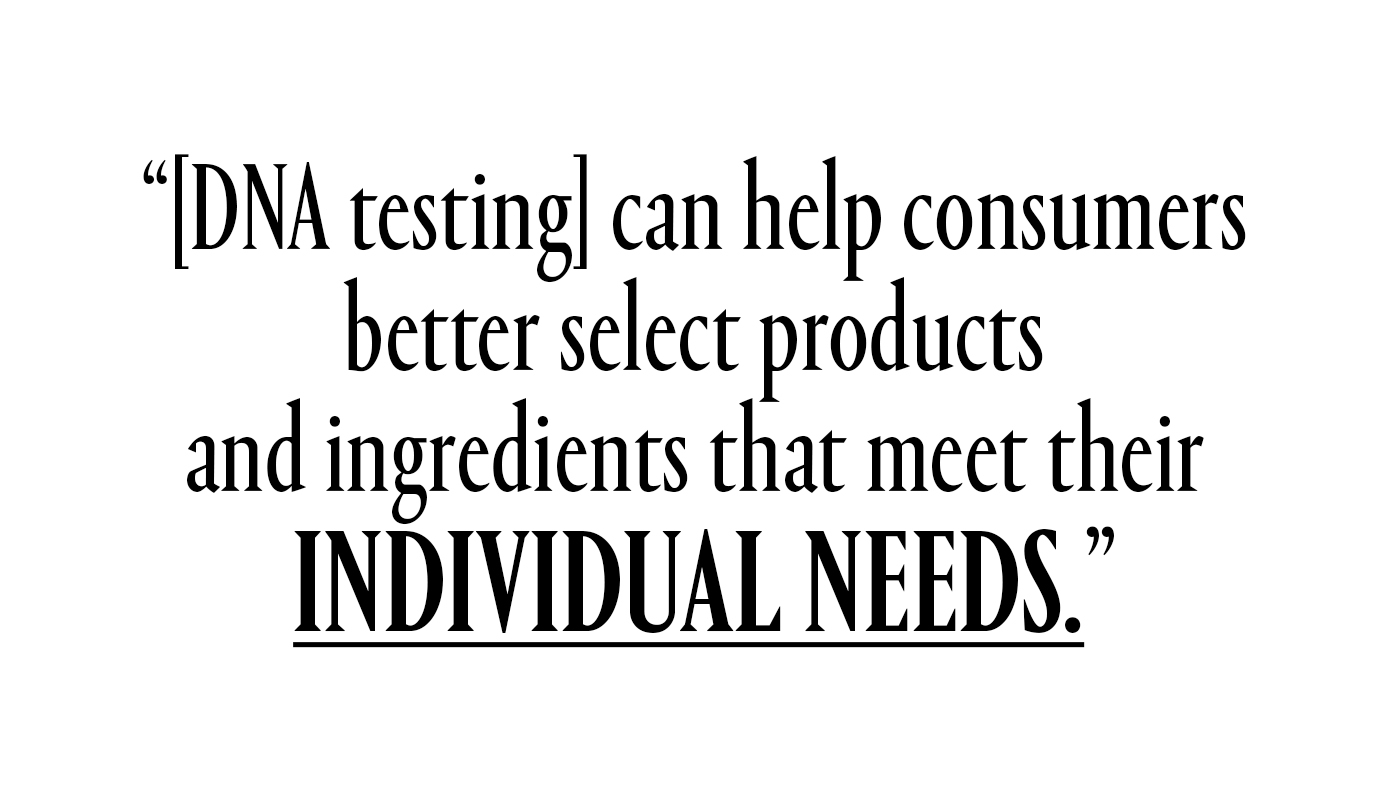
The beloved French skincare brand Biologique Recherche even offers My Beauty DNA Services at select spas and salons around the world. Using DNA sequencers, the company says it analyzes more than 600,000 genetic variations of the human genome to better understand each individual’s genetic predispositions, which are undetectable using other diagnostic instruments. “By being aware of these cutaneous predispositions, it will be easier to target the problems that need to be treated preventively to best protect your skin,” says Rupert Schmid, co-chairman of Biologique Recherche.
Other beauty biotech companies, like Parallel Health, are focusing their attention on your skin’s microbiome. Just like the gut, the skin has its own unique ecosystem of bacteria, fungi, viruses, and mites that can affect its integrity. Keeping it in balance is essential for maintaining a healthy complexion. If the microbial diversity of the skin’s barrier is out of whack, you’re more susceptible to chronic inflammatory skin conditions, such as dryness, acne, eczema, rosacea, and psoriasis; it can also manifest itself as skin sensitivity, wrinkles or an uneven skin tone.

That DNA testing is new means there’s a lot we don’t know. Research is not yet robust and more studies need to be done. “Scientists do not understand the biology of skincare well enough for [true] gene-personalized skincare to be a reality at this point,” says Valerie Horsley, Ph.D., professor of molecular, cellular and developmental biology and dermatology at Yale University. “We do not understand fully how the DNA sequence can change skin traits.” And high hopes can be costly. While the price of a comprehensive DNA test used to be around $1,000, you can still expect to shell out anywhere from around $100 to as much as $300. (Beware of low-priced tests online as lab fees are often an additional charge.)
Dr. Perkins agrees: Unbiased research, conducted independently, and not by for-profit companies is needed. But she also agrees that personalized skincare is of value and worth working towards. “The goal of tailoring skincare to the individual is important. The genetics and epigenetics of skin aging—and other skin conditions, including hyperpigmentation, acne, and rosacea—is an exciting and evolving field,” she says. “While one day we may have the research to make this process a viable skincare protocol, we’re not there yet.” That’s okay, though, says Joshua Zeichner, M.D., associate professor of dermatology and director of Cosmetic & Clinical Research in Dermatology at Mount Sinai Hospital in New York City. “Ultimately [DNA testing] can help consumers better select products and ingredients that meet their individual needs,” he says. Sometimes it’s confidence—not a cure—that’s needed to stick to a regimen that can lead to healthier skin.

-
 Princess Anne's Unexpected Suggestion About Mike Tindall's Nose
Princess Anne's Unexpected Suggestion About Mike Tindall's Nose"Princess Anne asked me if I'd have the surgery."
By Amy Mackelden Published
-
 Queen Elizabeth's "Disapproving" Royal Wedding Comment
Queen Elizabeth's "Disapproving" Royal Wedding CommentShe reportedly had lots of nice things to say, too.
By Amy Mackelden Published
-
 Palace Employees "Tried" to Get King Charles to "Slow Down"
Palace Employees "Tried" to Get King Charles to "Slow Down""Now he wants to do more and more and more. That's the problem."
By Amy Mackelden Published
-
 The 10 Best Hair Growth Shampoos of 2025, Tested by Editors
The 10 Best Hair Growth Shampoos of 2025, Tested by EditorsExpensive and healthy-looking hair on lock.
By Marisa Petrarca Published
-
 Is Colostrum the New Collagen?
Is Colostrum the New Collagen?Doctors and wellness professionals have a lot to say about TikTok's supplement of the moment.
By Gabrielle Ulubay Published
-
 Carla Hall Plans to Live Until She's 104 Years Old—and Her Strategy Is Sound
Carla Hall Plans to Live Until She's 104 Years Old—and Her Strategy Is Sound"I have marked my calendar."
By Gabrielle Ulubay Published
-
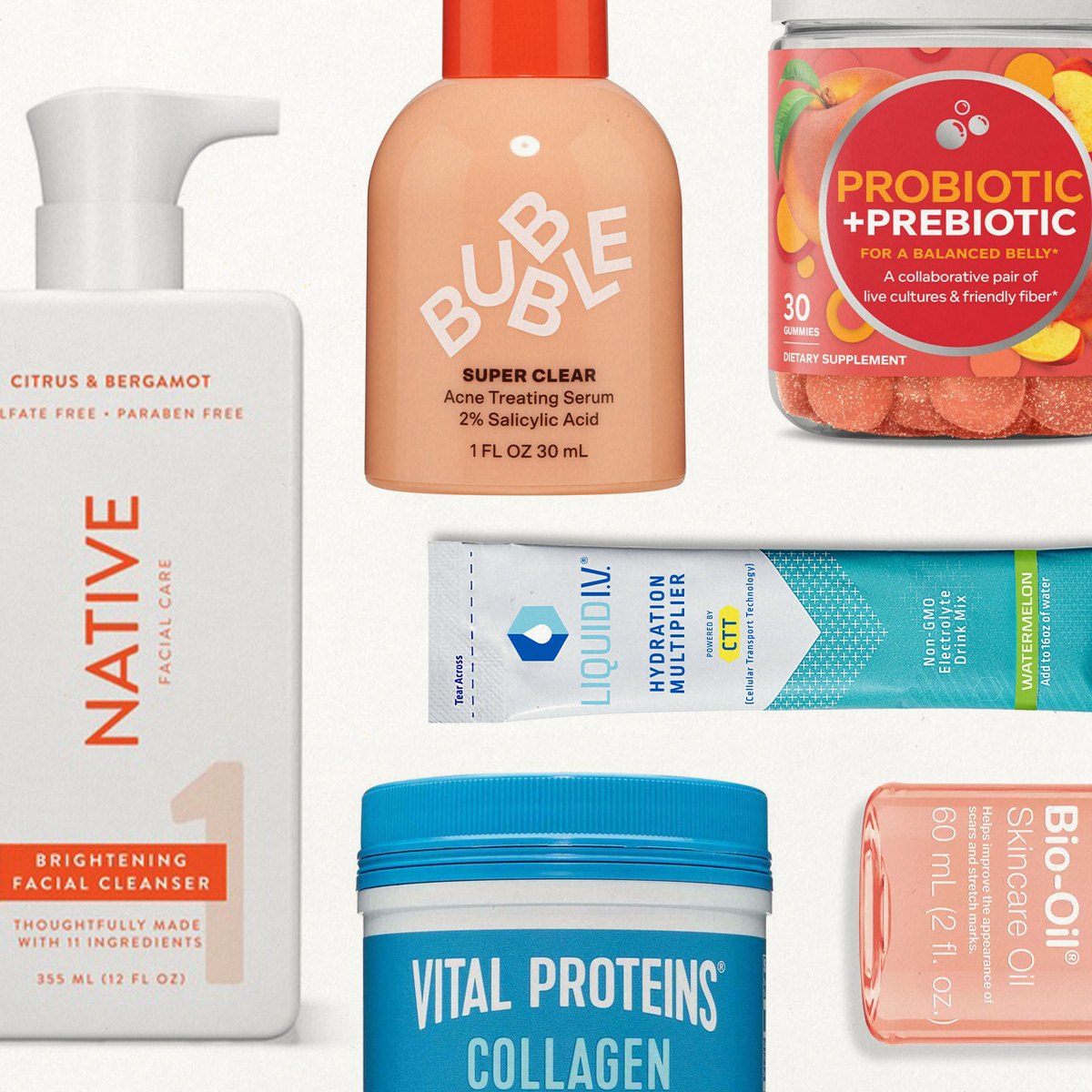 The Best Under-$38 Wellness Buys I Could Find
The Best Under-$38 Wellness Buys I Could FindSponsor Content Created With CVS
By Emma Walsh Published
-
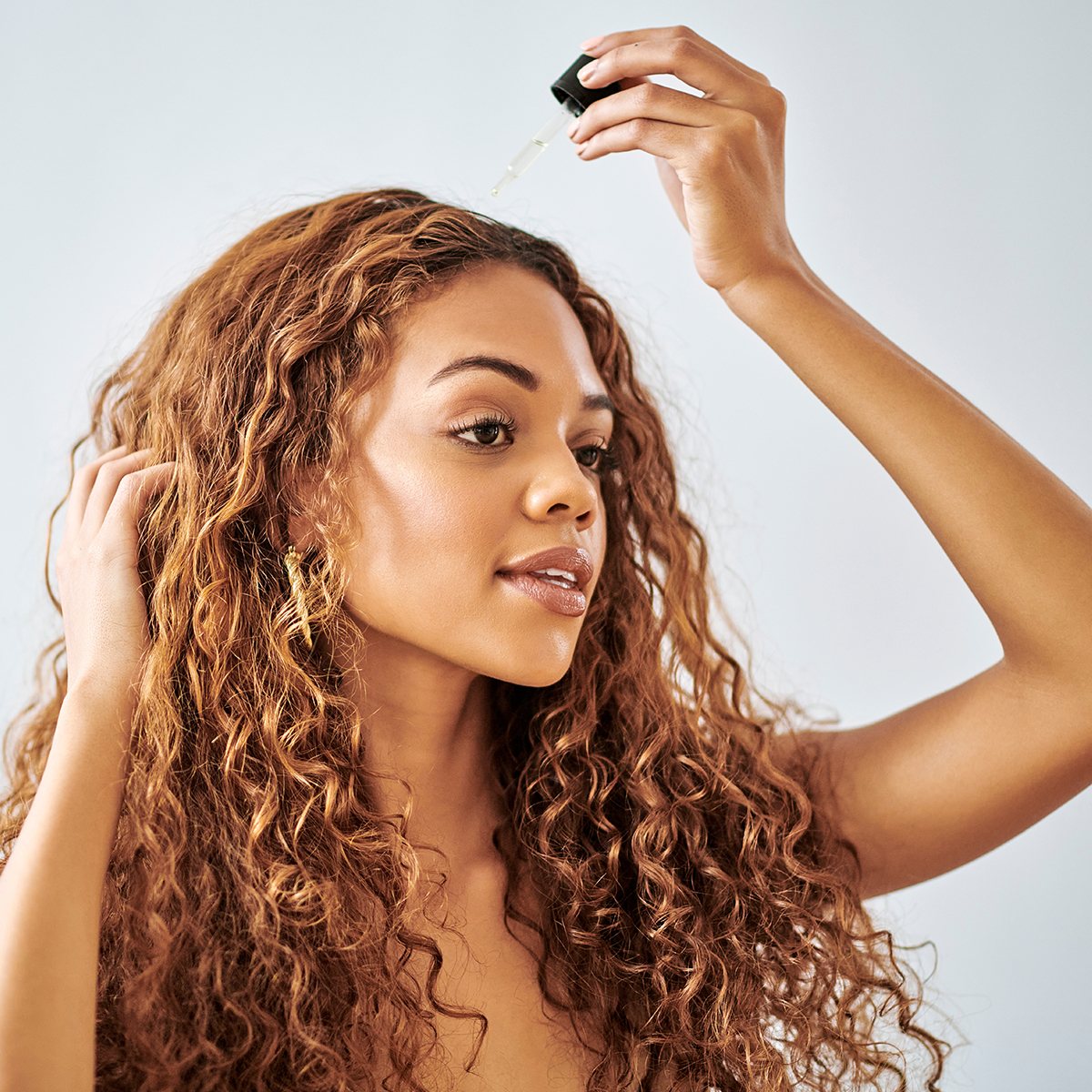 Using Rosemary Oil for Hair Growth Has Gone Viral—But Is It Worth the Buzz?
Using Rosemary Oil for Hair Growth Has Gone Viral—But Is It Worth the Buzz?A dermatologist set me straight—and on the path to longer, stronger hair.
By Samantha Holender Last updated
-
 You’ll Never Guess Where Liza Soberano Applies Her Blush
You’ll Never Guess Where Liza Soberano Applies Her Blush\201cI kind of go crazy with it.\201d
By Samantha Holender Published
-
 The 15 Best Hair Growth Shampoos of 2025, According to Experts
The 15 Best Hair Growth Shampoos of 2025, According to ExpertsRapunzel hair, coming right up.
By Marisa Petrarca Published
-
 Misty Copeland Is Stepping Beyond Ballet
Misty Copeland Is Stepping Beyond BalletThe professional ballerina talks nutrition, education, finding balance.
By Gabrielle Ulubay Published
